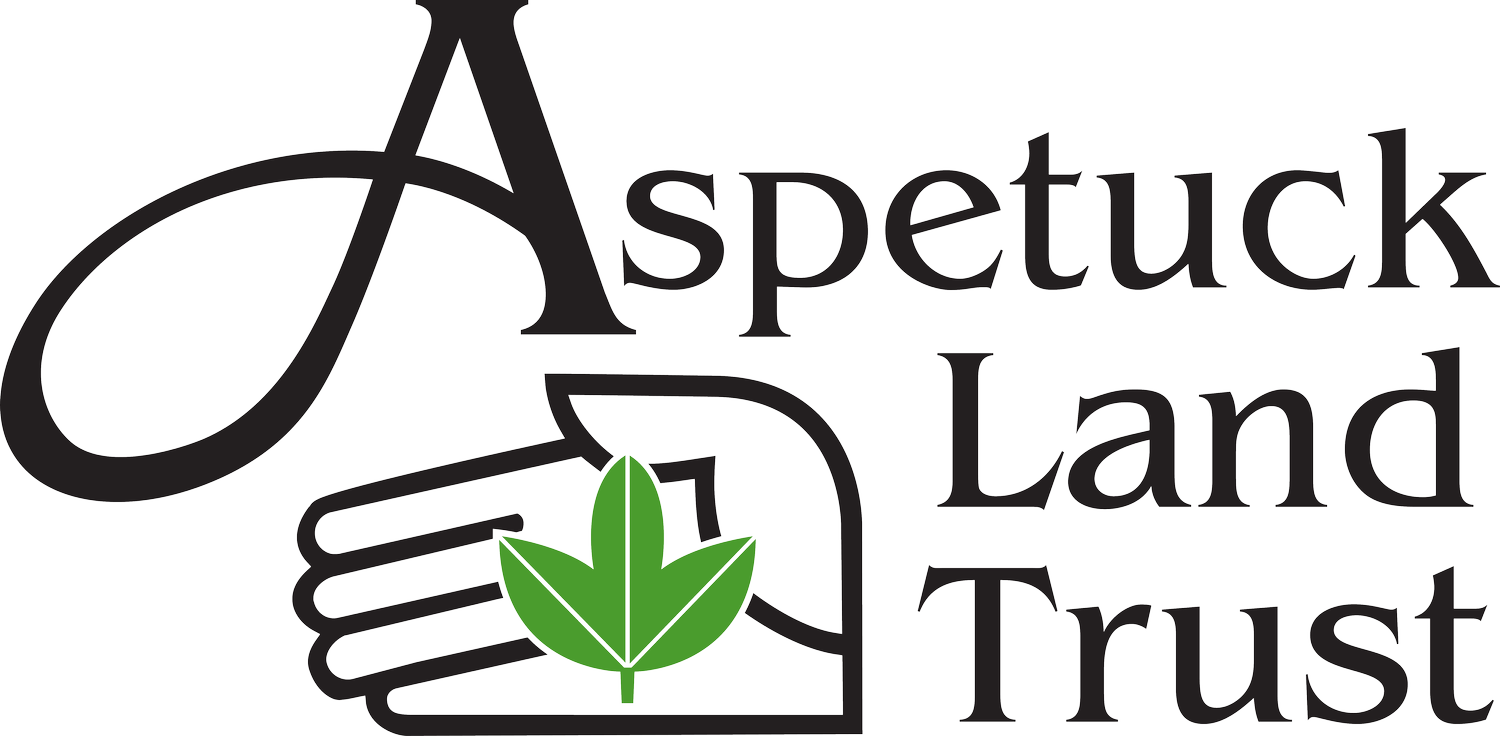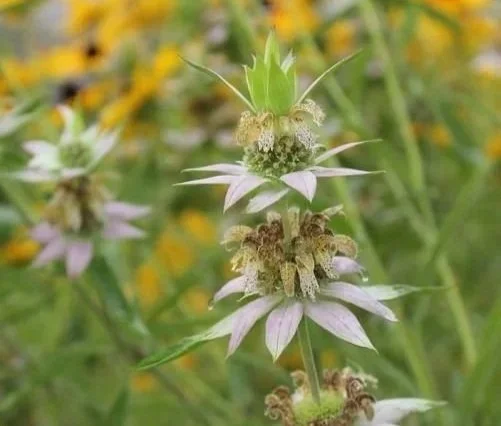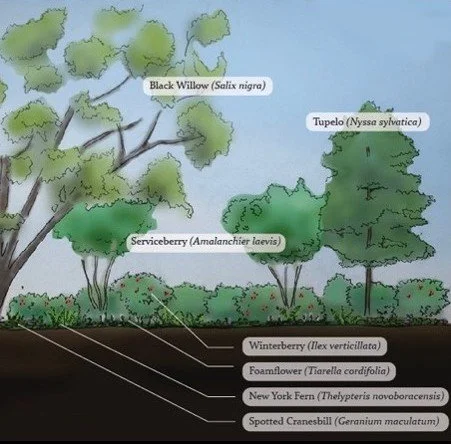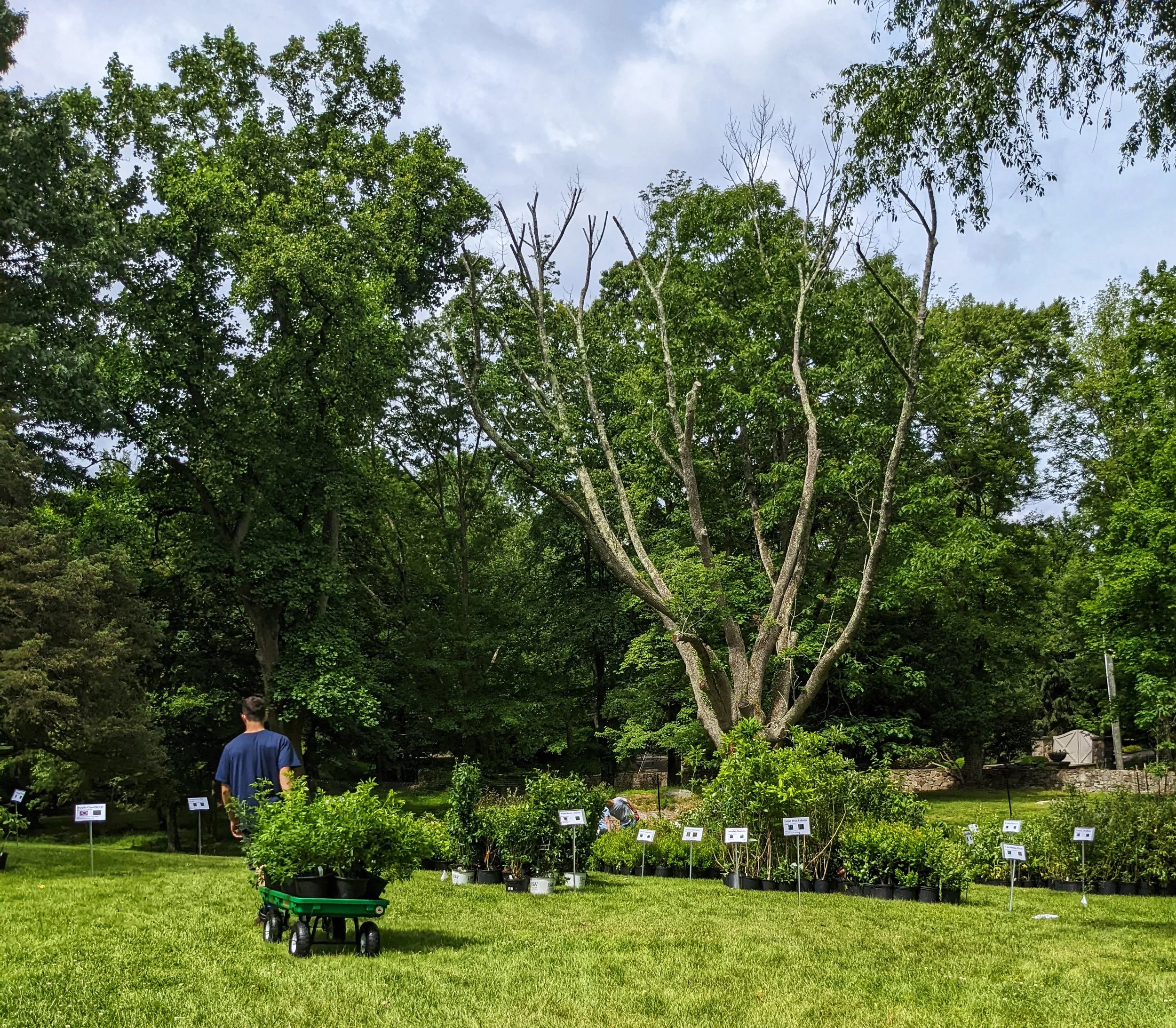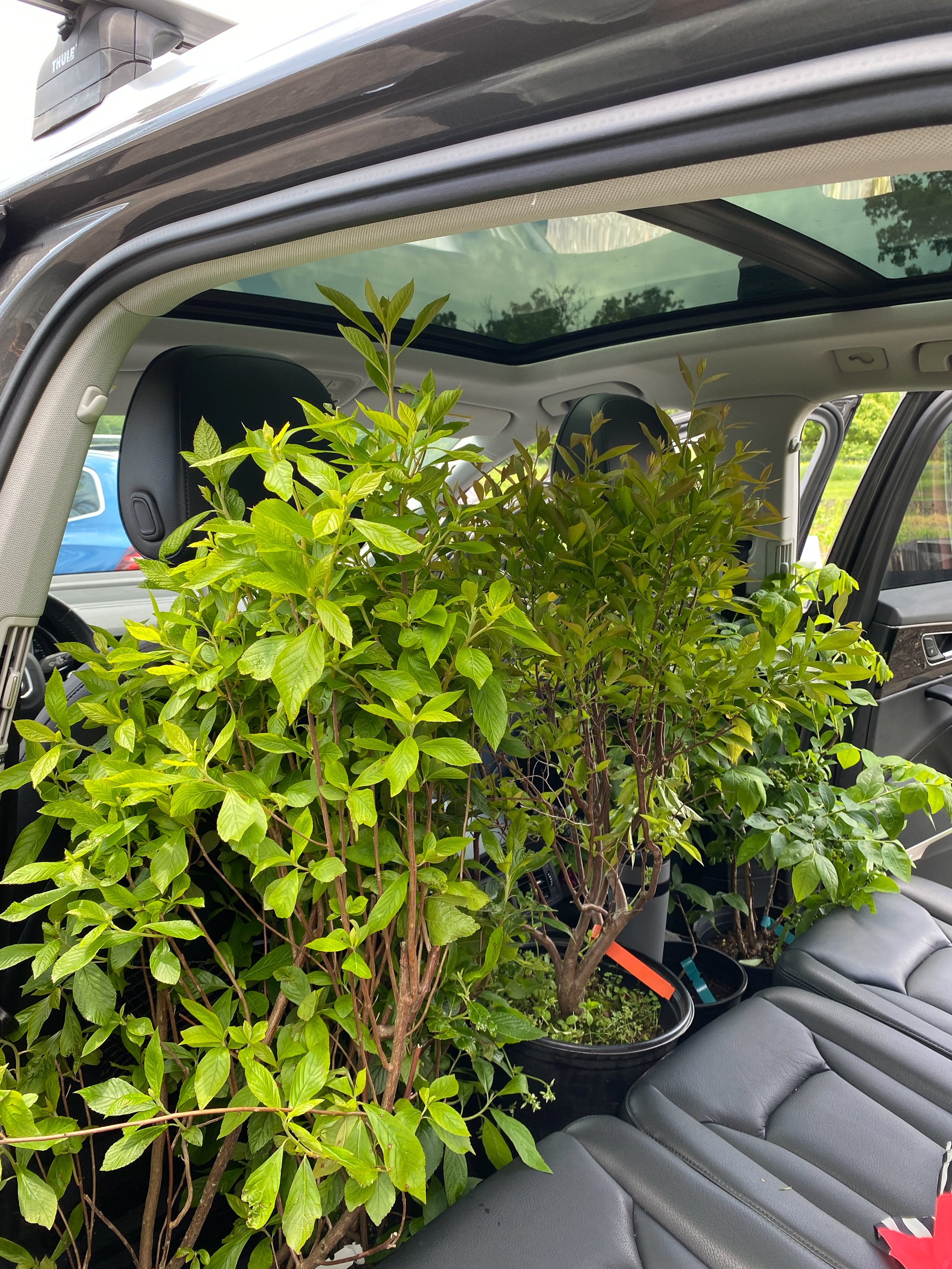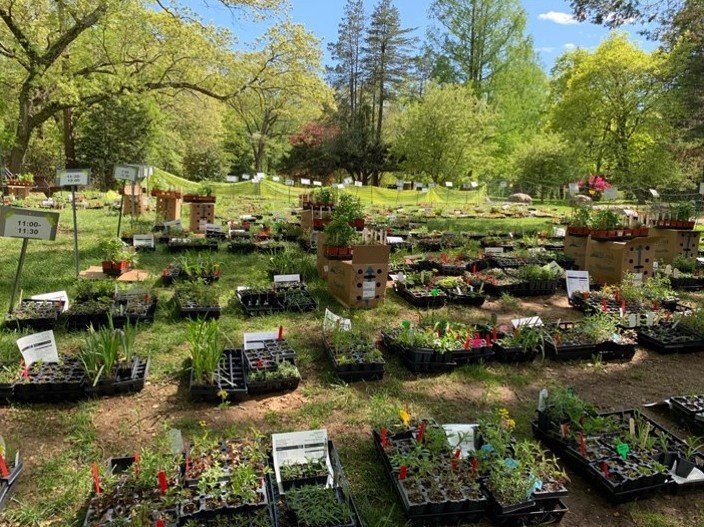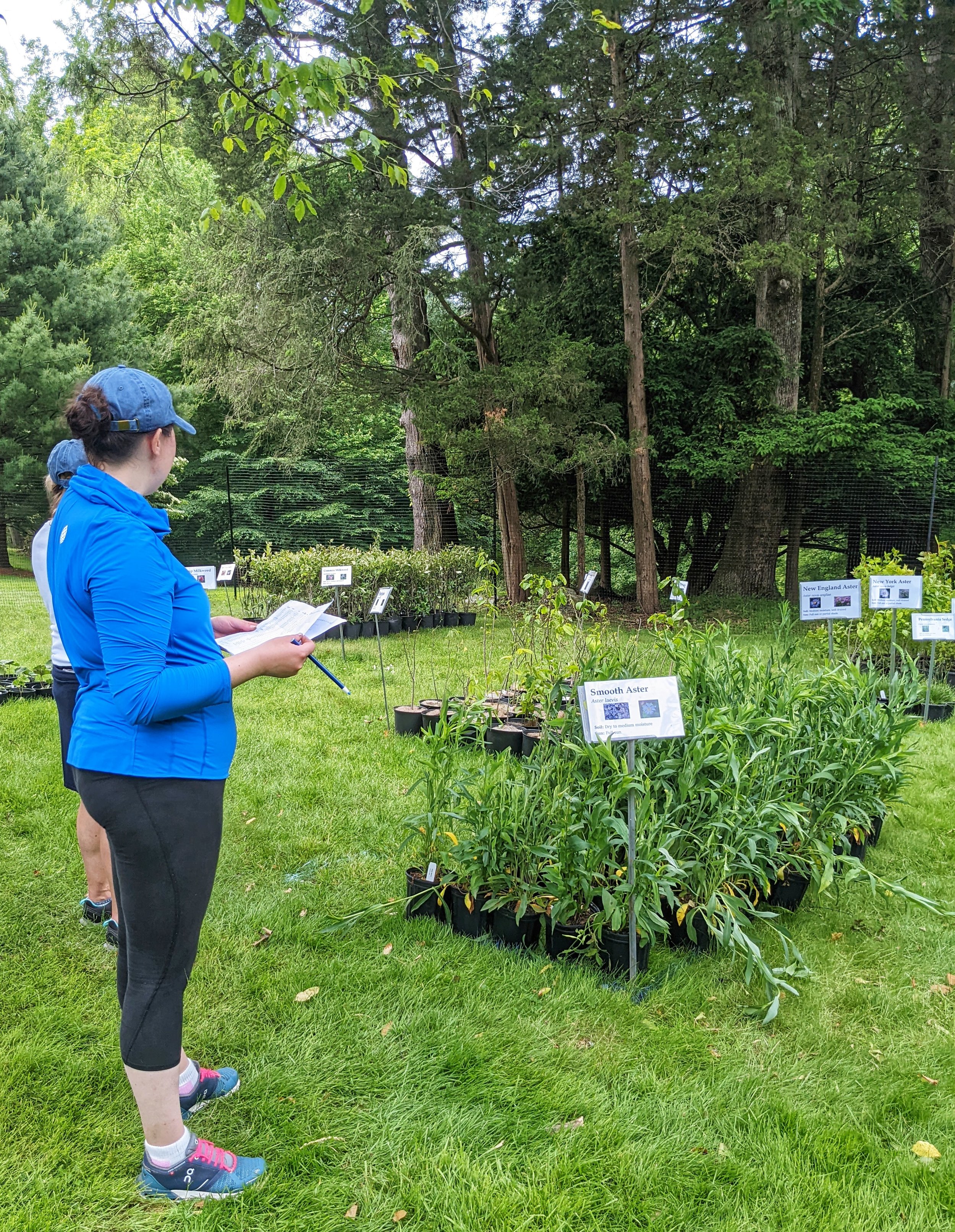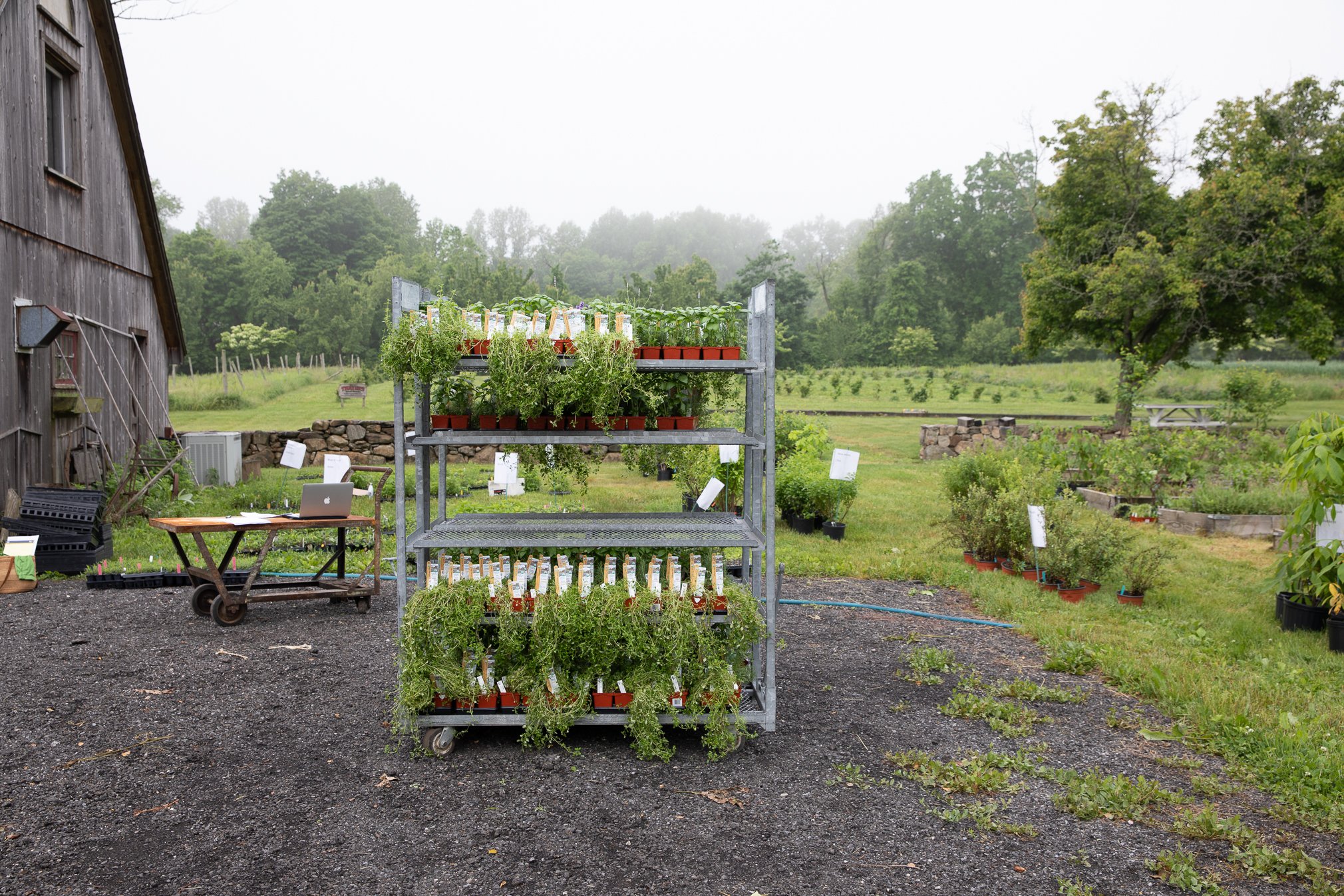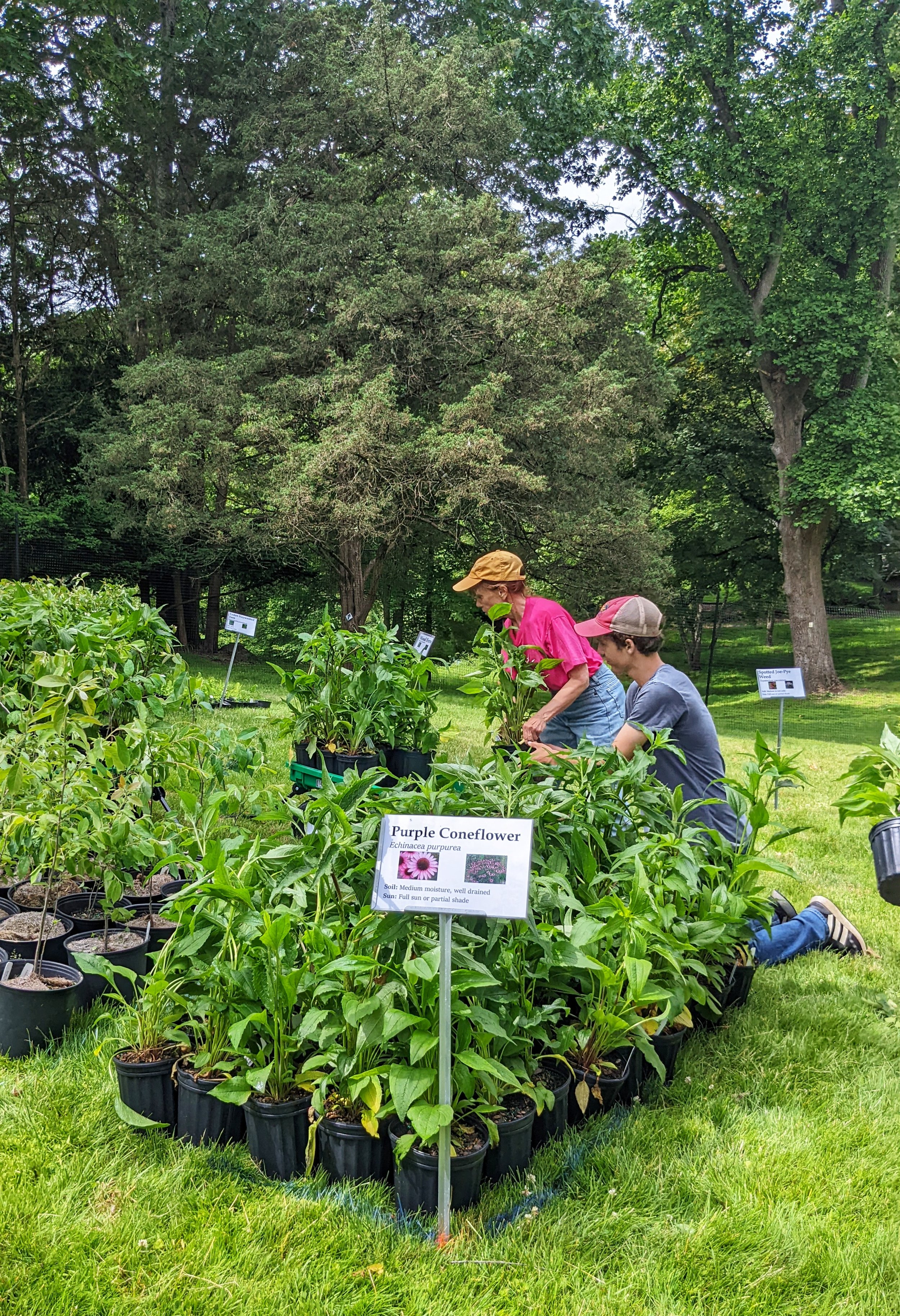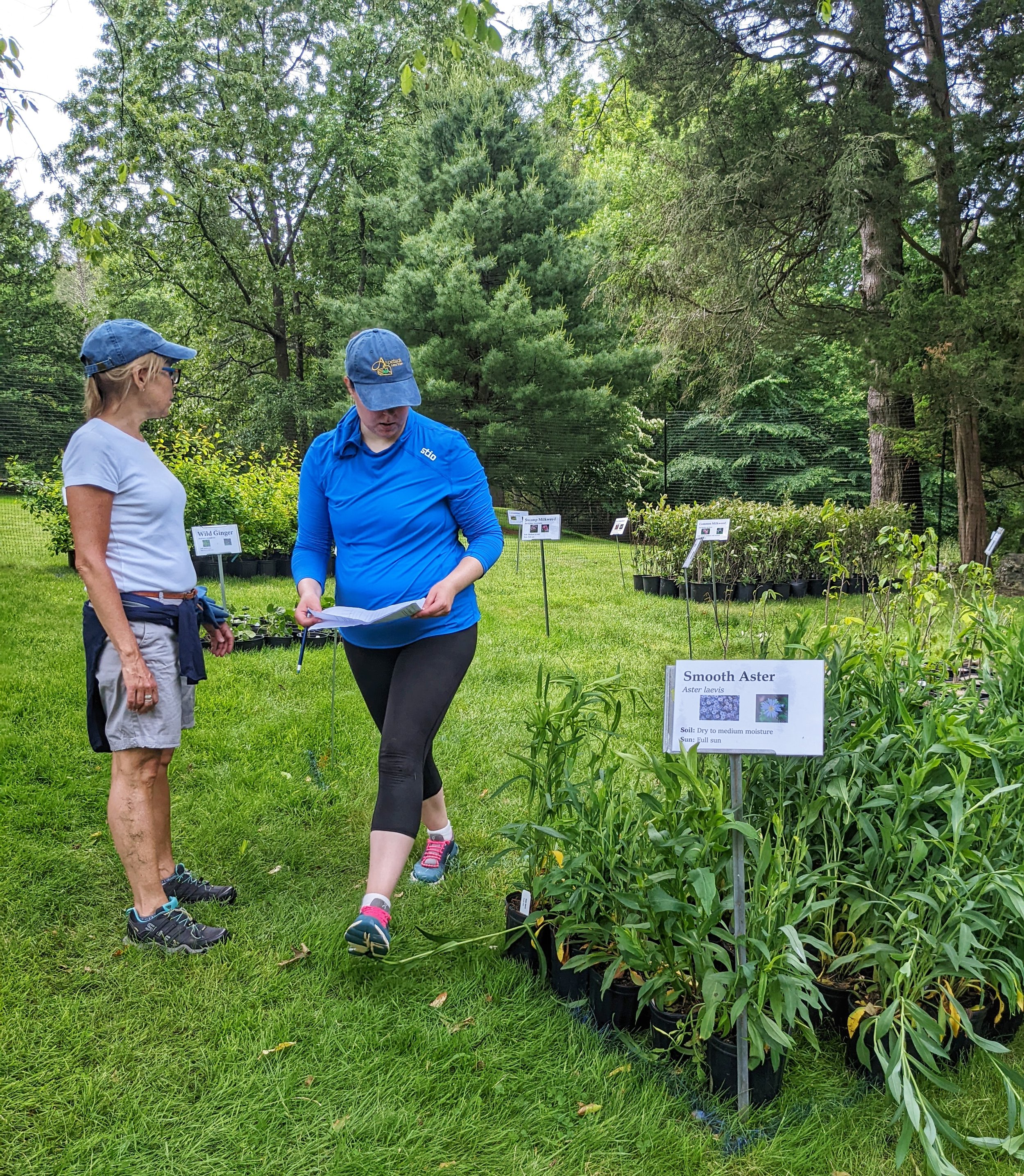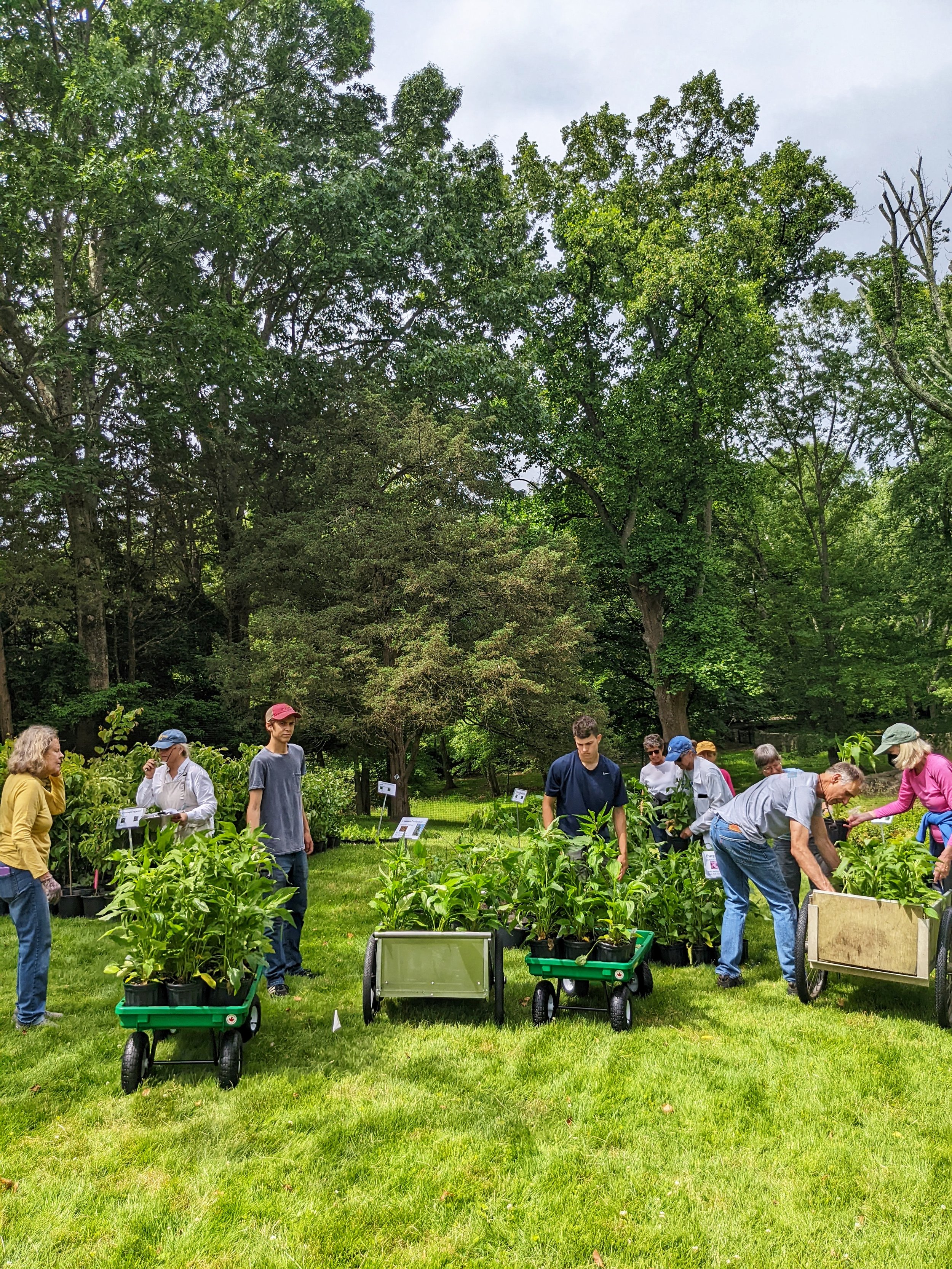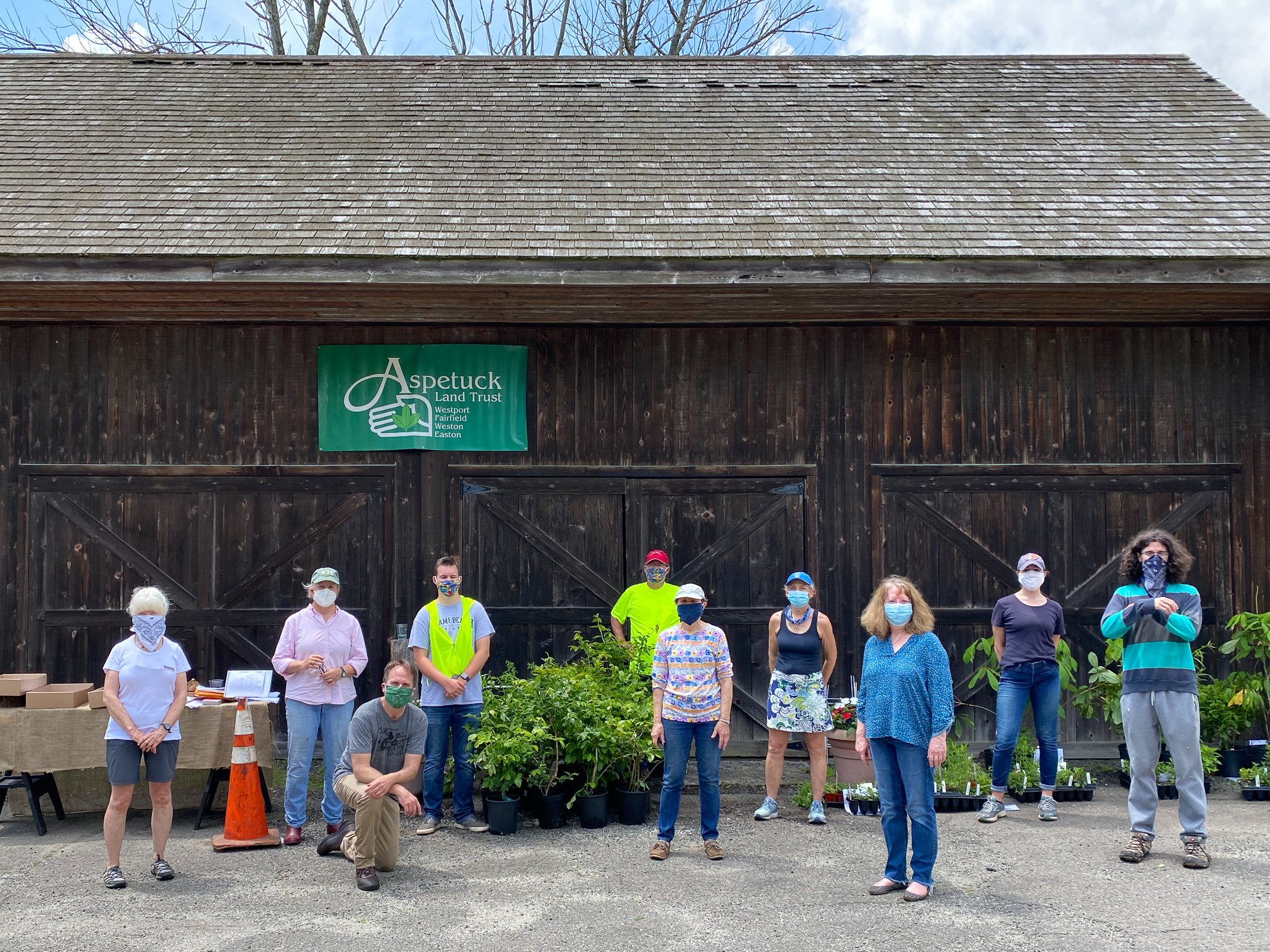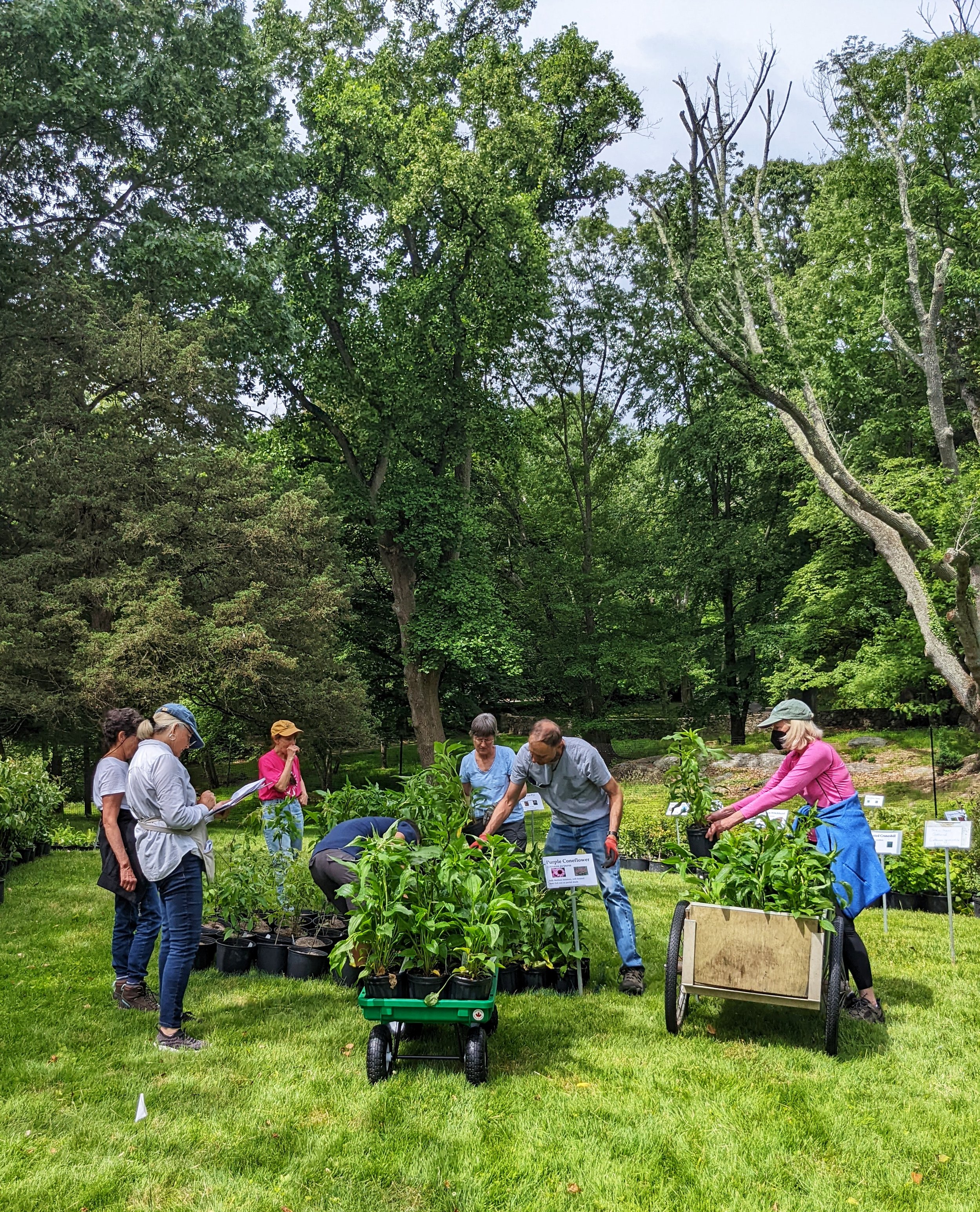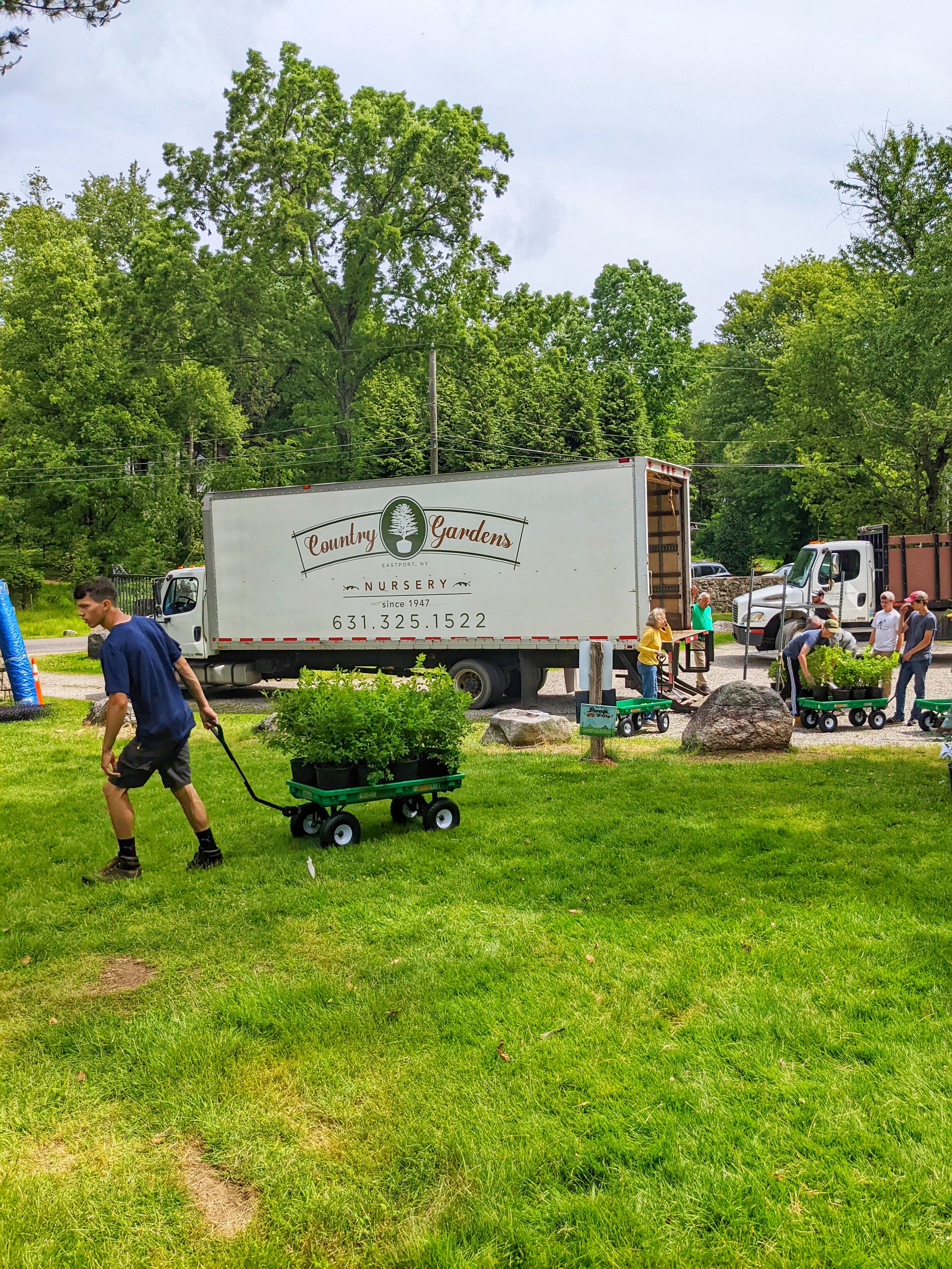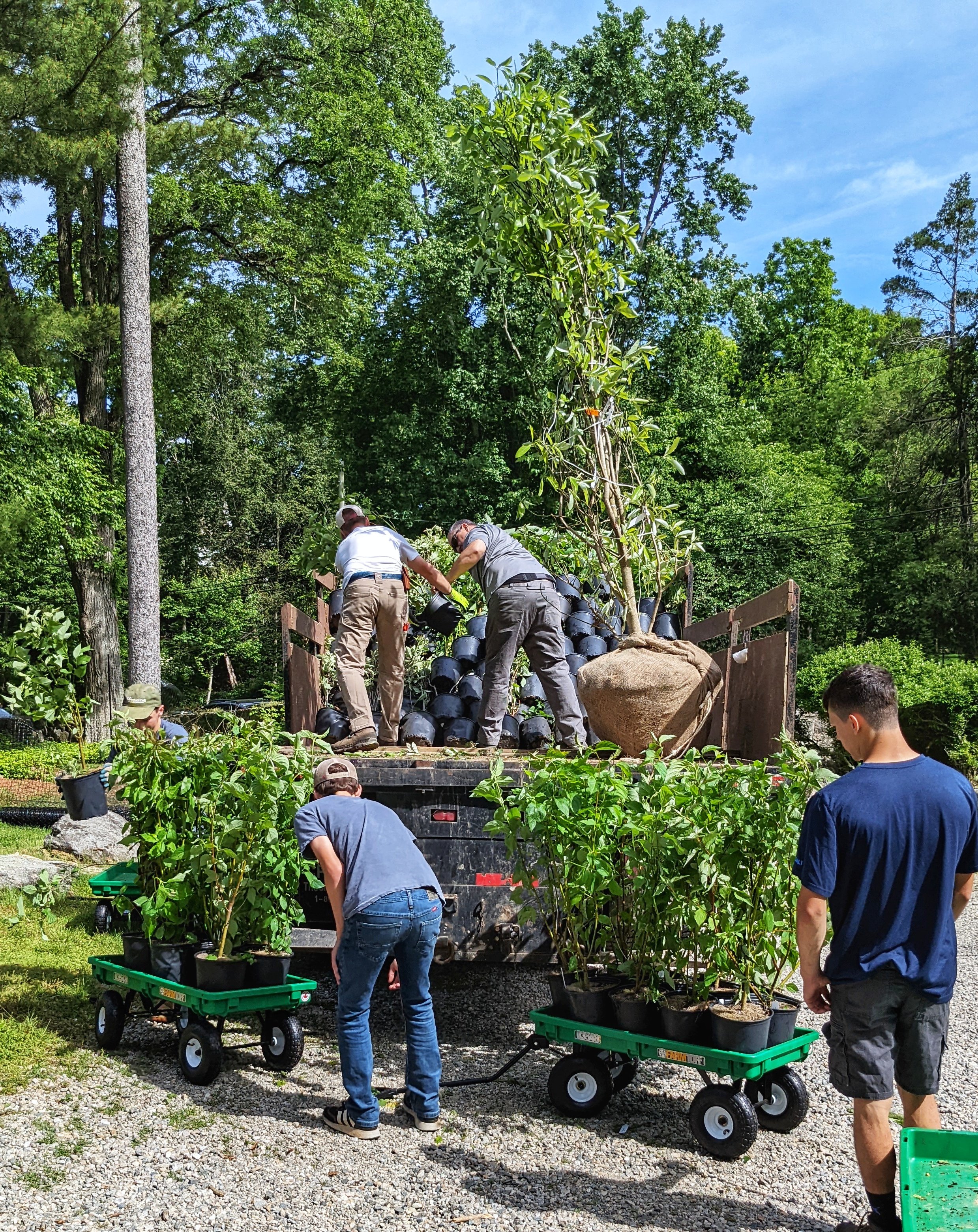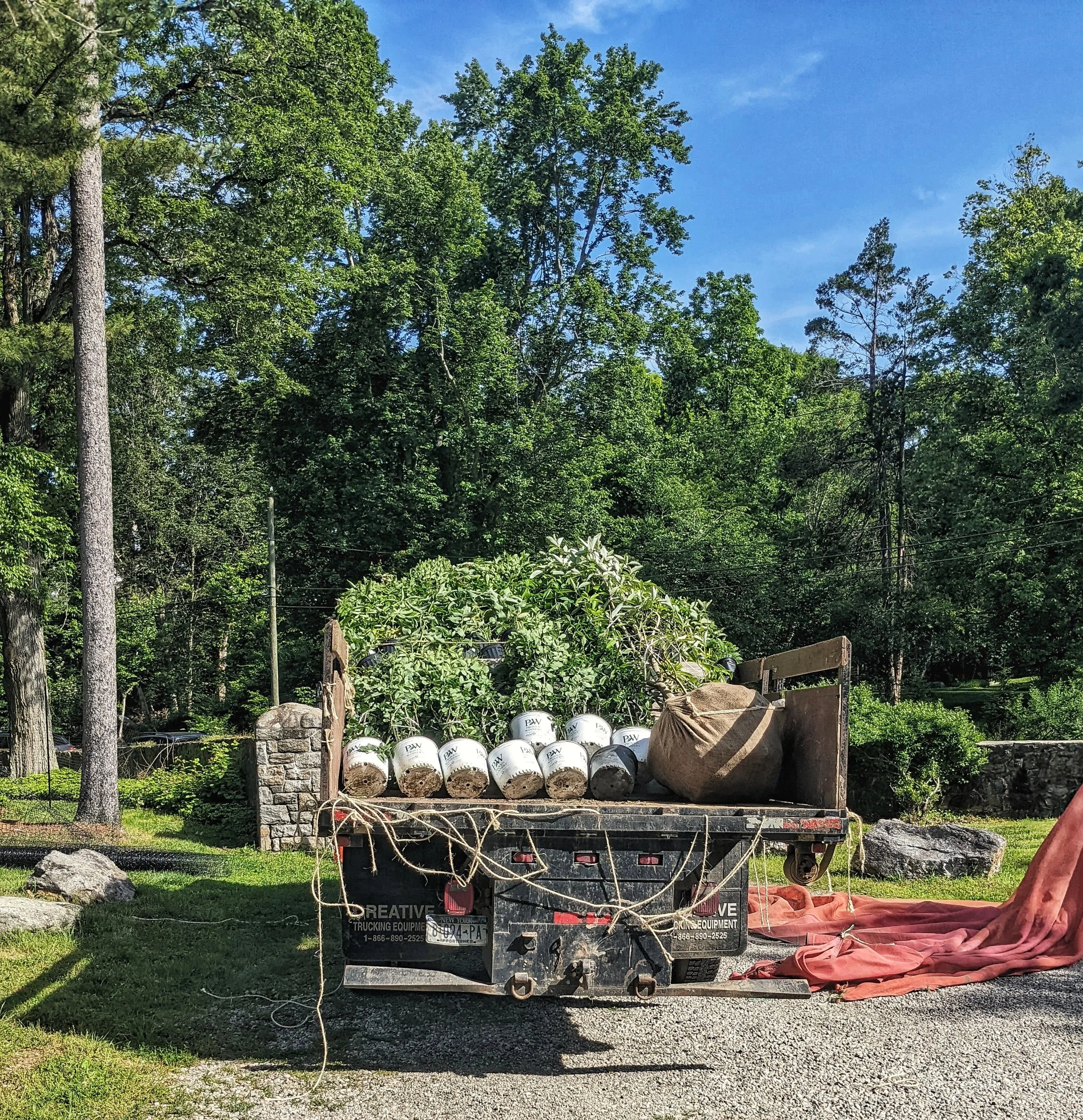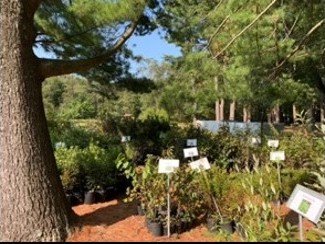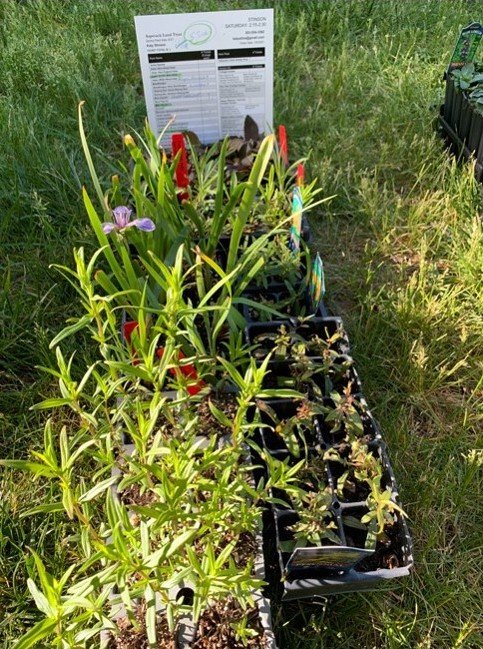Pick Up Friday, Oct 3 -
Sunday Morning, Oct 5
at Haskins Preserve in Westport, CT
NOTICE: We do not offer delivery. Please make sure you can pick up your plants in Westport, CT between Friday, October 3rd and Sunday, October 5th. Any orders not picked up during this 3-day window will be planted in our preserves. Thank you!
FREE SOIL TESTING!
Get the best results from your flowers, vegetable garden, and lawn this year. Test your soil before fertilizing or adding any amendments to see what your plants really need to do their best.
Native plants generally don’t need any fertilizer. They are well adapted to the local soil. Your vegetable garden may need some amendments but what it needs can vary with what you are growing. Correct soil pH is very important because it allows nutrients to be available for plants, including grass, to take up. Adding fertilizers when the soil pH is not in the optimum range can lead to runoff and harm our environment.
Testing your soil before you add any amendments can save you time, effort, and money and for CT residents it is free!
Find out how to submit your soil samples to the CT Agricultural Experiment Station HERE.
A Tradition: Native Plant Sales
Since spring 2020, the Aspetuck Land Trust has organized fall and spring native plant sales in order to bring hard-to-get native plants, trees, and shrubs to people’s yards. Additionally, the sales provide the funding that the land trust uses year-round to steward open spaces. The plant sales support land protection and land stewardship prongs of the Green Corridor. With native plants, private properties become stepping stones for wildlife. Plants are ordered online and picked up during select fall and spring weekends at the Caryl and Edna Haskins Preserve in Westport. Stay tuned for the order forms to launch a month before each sale and reach out to administration@aspetucklandtrust.org with any questions.
2020 Plant Sales
We began by partnering with the Connecticut Northeast Organic Farmers Association (NOFA) Ecotype Project to stock the 2020 spring sale with plants that are native to our particular Connecticut area or “ecoregion.” Scientists recognize our land and waters as being split into regions of similar vegetation, sunlight, and precipitation patterns. It’s like choosing the right plants for your backyard: we want to plant natives that have evolved in our ecoregion, not South Dakota or the Midwest, because those are the plants that will help our local wildlife to thrive.
The Ecotype Project involves sustainably collecting seeds from the wild in our own Ecoregion 59, then growing them out for transplanting into open spaces and private land. In addition to involving working farmers in each step of the process, the Ecotype Project also solves the issue of genetic diversity that we often encounter when searching for native seeds and plants. Ecotype perennials have more variety in bloom color, shape, and other attributes than plants that have been selectively bred in nurseries. When it comes to the wild, variety or “genetic diversity” is a safeguard: helping plants to weather changes or threats.
2021 Plant Sales
In 2021, we shifted our focus up the forest canopy. Ecologist Doug Tallamy’s research demonstrates all plants are not created equal: 5% of native plants make up 75% of the food that supports caterpillars from moths and butterflies. In turn, these insects become food for birds and the rest of the food web. These high-powered or “keystone” species include oaks which host 535 types of caterpillars, cherries (456 insects), willows (455 insects), birches (411 insects), and poplars (367 insects). Planting these trees not only adds new layers to yards and gardens (thinking big instead of small), but it also maximizes natural benefits. Keystone plants have now become a key part of all of our plant sales.
“Each Layer in a forest has a particular ecological function, Landscape designs should begin with keystone species like oaks, cherries, willows, birches, and poplars. Once those are in place, more layered plants can be added to create a 3D mini forest that bustles with life,” Heather McCargo of the Wild Seed Project told us.
The work of Heather McCargo and Anna Fialkoff from the Wild Seed Project as well as the research of Dr. Doug Tallamy have inspired our focus on keystone species.
2022 Plant Sales
As we move foward, we’ve been inspired by the efforts of the Wild Seed Project in Maine, with their vision of “rewilding,” re-creating healthy lands where 70% of plants are native. We keep expanding our plant lists each season, as our customers and supporters continue to grow! The Ecotype Project remains a source of plants in addition to Connecticut wholesale nurseries like Long Island Natives, Summer Hill, and Planter’s Choice. And along with our Green Corridor Vision 2030, we’ve been thinking more broadly about the benefits of plants in reconnecting natural areas and supporting our shared land, air, and water resources.
Landowner Engagement Director Mary Ellen Lemay writes, “The natural habitat we add to our yards just gets better over time by managing storm water, pulling carbon from the air, cooling our homes from the sun, and of course providing a place for nature to thrive.”
We are excited to continue on this plant sale journey. We hope that you will join us next September/October or May/June!
Scroll through for photos of our amazing plants and volunteers!
